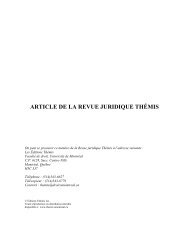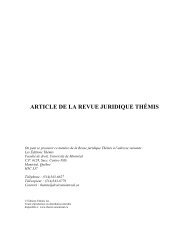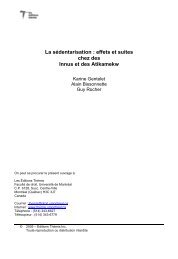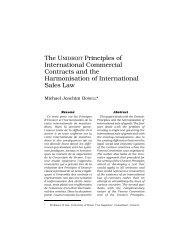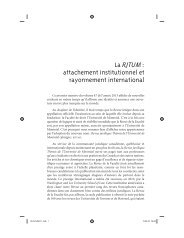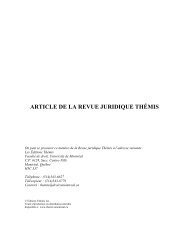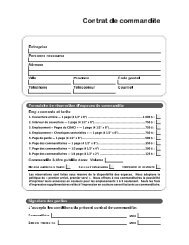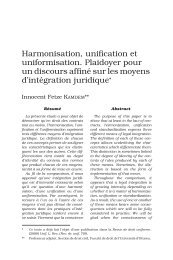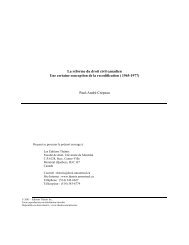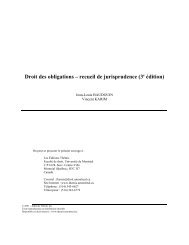The UNIDROIT Principles of International Commercial Contracts and ...
The UNIDROIT Principles of International Commercial Contracts and ...
The UNIDROIT Principles of International Commercial Contracts and ...
Create successful ePaper yourself
Turn your PDF publications into a flip-book with our unique Google optimized e-Paper software.
THE <strong>UNIDROIT</strong> PRINCIPLES AND MERCOSUR COUNTRIES 397<br />
<strong>of</strong> non-legislative provisions to rule the contract – such as the <strong>Principles</strong><br />
–, case in which we would have a “denationalized contract”.<br />
Article 17 <strong>of</strong> the 1994 Mexico Convention states that the expre s s i o n<br />
“law” must be understood as the law validly accepted in a State,<br />
with the exception <strong>of</strong> the norms regarding conflicts <strong>of</strong> laws. Thus,<br />
the applicability <strong>of</strong> non-legislative sources such as the <strong>Principles</strong><br />
shall take place only subsidiarily, with the purpose <strong>of</strong> supplementing<br />
the applicable national law or interpreting it under the light<br />
<strong>of</strong> the international context.<br />
<strong>The</strong> adoption <strong>of</strong> the 1994 Mexico Convention by the MERCOSUR<br />
countries would undoubtedly have the advantage <strong>of</strong> harm o n i z i n g<br />
the contractual conflict rules in the region. In addition, it would<br />
clearly <strong>and</strong> safely admit the principle <strong>of</strong> party autonomy in the<br />
choice <strong>of</strong> the law applicable to the contract, as well as the<br />
application <strong>of</strong> generally accepted international trade law principles.<br />
2. Arbitration – Autonomous Regulation in the MERCOSUR<br />
At ME R C O S U R level, its member-countries signed in Buenos Aire s<br />
(1998) two uniform arbitration conventions, which, however, haven’t<br />
yet entered into force. <strong>The</strong> first is the 1998 MERCOSUR Agreement on<br />
I n t e rnational <strong>Commercial</strong> Arbitration, concluded between the<br />
m e m b e r-countries, <strong>and</strong> the second is the 1998 A g reement on<br />
I n t e rnational <strong>Commercial</strong> Arbitration signed between ME R C O S U R,<br />
Bolivia <strong>and</strong> Chile 39 .<br />
<strong>The</strong>se instruments constitute true international arbitration<br />
conventions, which establish uniform arbitration rules <strong>and</strong> principles<br />
for the signatory countries. When the 1998 ME R C O S U R<br />
A g reements enter into force, the region will benefit from a consolidated<br />
international arbitration regime, favoring certainty <strong>and</strong><br />
stability for the trade exchanges taking place within the region <strong>and</strong><br />
abroad 40 .<br />
39 <strong>The</strong> mentioned Arbitration Agreements were approved by the Council <strong>of</strong> the<br />
Common Market by means <strong>of</strong> decisions 3/98 <strong>and</strong> 4/98, respectively.<br />
40 On the Arbitration Agreements in the Mercosul, see: Maria Blanca NOODT<br />
TAQUELA, Arbitraje Internacional en el MERCOSUR, Buenos Aires, Ed. Ciudad<br />
Argentina, 1999.



